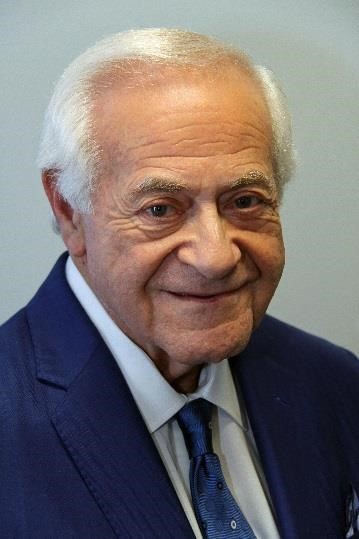Phillip E. Korenblat, MD, FAAAAI Lectureship: Investing Together in Our Future
 Phillip E. Korenblat, MD, FAAAAI is Professor of Clinical Medicine at Washington University School of Medicine. He obtained his undergraduate and Doctor of Medicine degrees from the University of Arkansas. His residency at Washington University School of Medicine was completed in 1965 followed by an allergy, immunology, and rheumatology fellowship at Scripps Clinic and Research Foundation. Dr. Korenblat returned to St. Louis and established his private practice in 1966, practicing at Associated Specialists in Medicine, P.C. for 49 years. He transitioned to the Clinical Research Center located at Barnes Jewish West County Hospital, which he originated in 1990 at the time of establishing the first dedicated center for asthma care in the community.
Phillip E. Korenblat, MD, FAAAAI is Professor of Clinical Medicine at Washington University School of Medicine. He obtained his undergraduate and Doctor of Medicine degrees from the University of Arkansas. His residency at Washington University School of Medicine was completed in 1965 followed by an allergy, immunology, and rheumatology fellowship at Scripps Clinic and Research Foundation. Dr. Korenblat returned to St. Louis and established his private practice in 1966, practicing at Associated Specialists in Medicine, P.C. for 49 years. He transitioned to the Clinical Research Center located at Barnes Jewish West County Hospital, which he originated in 1990 at the time of establishing the first dedicated center for asthma care in the community.
Dr. Korenblat has completed over 300 clinical research studies and has been
published extensively, including being credited as co-editor of two editions of the textbook, Allergy Theory and Practice. Within the 1984 edition, he published the first asthma guidelines for the management of asthma which introduced the concept of using the “mild, moderate, and severe classification.” In 1968, Dr. Korenblat, with co-investigators, published the first evidence of tolerance in humans to oral ingested food antigen and in collaboration with co-investigators was the first to present data demonstrating the requirement of multiple doses of epinephrine for the treatment of anaphylaxis.
Among his many professional honors, Dr. Korenblat received the “Outstanding Teaching Allergist” and Distinguished Clinician awards from the American Academy of Asthma, Allergy & Immunology. In 1995 he was awarded the Distinguished Service Award from the Washington University Medical Center Alumni Association. The Lifetime Achievement Award-Master Physician was presented to him by the Barnes-Jewish Hospital Medical Staff Association in 2012.
Over the course of his distinguished career, Dr. Korenblat has been a caring physician, a physician educator and mentor to younger physicians and the AAAAI Foundation is proud to offer this new lectureship in his name. Dr. Korenblat's Lectureship was established in 2017.
2020 marks the 3rd year of the Phillip E. Korenblat, MD, FAAAAI Lectureship: Investing Together in Our Future. It will be presented in Plenary Session 2101: New Paradigms in the Management of Severe Asthma on Saturday, March 14, 2020 at 8:50 am - Convention Center, 200 Level, Hall D.
Sally E. Wenzel, MD FAAAAI
Director of the University of Pittsburgh Asthma Institute at UPMC and Chair for the Department of Environmental and Occupational Health
at the Graduate School of Public Health, University of Pittsburgh
 Sally E. Wenzel, MD FAAAAI completed her MD degree at the University of Florida. Following her residency in internal medicine at Wake Forest University and her fellowship in pulmonary and critical care medicine at Virginia Commonwealth University, she spent 19 years at National Jewish and the University of Colorado before moving to the University of Pittsburgh. She received the Elizabeth Rich Award for her role in promoting women in science, the ATS Award for Scientific Achievement, the ATS Foundation Breathing for Life Award, and the ERS President’s Award. She is currently Director of the University of Pittsburgh Asthma Institute at UPMC, and Chair for the Department of Environmental and Occupational Health, at the Graduate School of Public Health, University of Pittsburgh.
Sally E. Wenzel, MD FAAAAI completed her MD degree at the University of Florida. Following her residency in internal medicine at Wake Forest University and her fellowship in pulmonary and critical care medicine at Virginia Commonwealth University, she spent 19 years at National Jewish and the University of Colorado before moving to the University of Pittsburgh. She received the Elizabeth Rich Award for her role in promoting women in science, the ATS Award for Scientific Achievement, the ATS Foundation Breathing for Life Award, and the ERS President’s Award. She is currently Director of the University of Pittsburgh Asthma Institute at UPMC, and Chair for the Department of Environmental and Occupational Health, at the Graduate School of Public Health, University of Pittsburgh.
Dr. Wenzel has served as Deputy Editor for the American Journal of Respiratory and Critical Care Medicine and is a frequent reviewer for the New England Journal of Medicine and other publications. Dr. Wenzel has a passion for understanding and improving the treatment of asthma, in particular severe asthma. She has promoted severe asthma as a complex disease and her studies of asthma phenotypes have led the field in understanding these complexities. Dr. Wenzel has developed a strong translational program to study the pathobiology of severe asthma and its phenotypes, including the role of the environment in the development of these phenotypes.

 Facebook
Facebook X
X LinkedIn
LinkedIn Forward
Forward